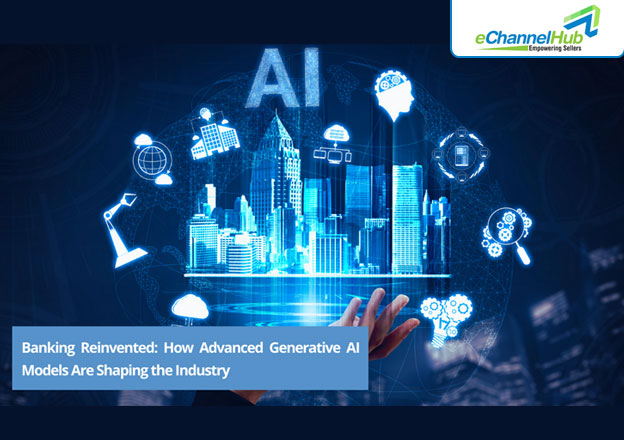Are there any risks or challenges associated with implementing generative AI in banking, and how can they be mitigated?

The risks of artificial intelligence (AI) have become an increasingly recurring and relevant topic as these technologies are here to stay and are present in a thousand ways in our daily lives. In this article, we rescue important information about AI, the risks that have been associated with it at a social level, as well as resources to mitigate them.
About artificial intelligence
AI adoption continues to grow at an unprecedented rate globally, some numbers that account for this are shared in McKinsey’s 2022 report on technology trends :
The revolution that artificial intelligence has brought also extends to the social sphere, since these technologies can help in the decision-making process and thus generate more egalitarian and efficient policies. Not only that, responsible use of AI could improve our jobs, health services, educational quality, etc. Since the potential to improve the social well-being of AI began to be discussed, many governments and entrepreneurs have turned their attention toward solving a myriad of social problems and creating effective public policies.
What are the risks of artificial intelligence?
The use of artificial intelligence systems in decision-making processes carries certain risks due to the potential direct or indirect impacts of the implementation of these technologies. Some of these risks include:
The leaking of personal data can compromise the well-being of people.
- The extreme surveillance and subsequent manipulation by private or government organizations with access to the information that feeds artificial intelligence technologies.
- The “echo chambers” or “bubble filters” occur when exposed to the same ideas, news, and/or facts, which is a common phenomenon among users of social networks and ends up strengthening preconceived biases. This is specifically dangerous among decision-makers in any field, but even more so among those who work in public policy.
- Underrepresentation in the models created by artificial intelligence, especially in matters related to access to health and education.
- Have the information rather than an action plan. Having the necessary information to address a social problem is just as important as having developed a roadmap to solve it.
- Fortunately, these types of risks can be anticipated and mitigated by ensuring that those involved in the development and use of these technologies establish clear protocols for each stage of their life cycle. This approach makes it easier to organize the discussion and identify the specific risks associated with each stage, when, given the iterative nature of AI, a linear approach is not appropriate.
Solutions for the risks of artificial intelligence
- At the regional level, the IDB, through its fAIr LAC initiative, has collaborated with the governments of Latin America and the Caribbean (LAC) to promote the responsible use and adoption of AI. In response to the work carried out with the public and private sectors, fAIr LAC has also focused efforts on developing resources to raise awareness of the potential benefits and also of the great risks that artificial intelligence entails. These resources include not only general documents but also specific tools for putting the principles of these technologies into practice.
- The most recent resource is fAIr LAC a la mano, where there are 5 open and available tools for those who lead projects that use AI and for teams that directly develop solutions and want to comply with ethical principles and risk reduction:
- An ethical self-assessment for systems developed in government agencies. This tool is a questionnaire that reviews the most important aspects that must be taken into account to mitigate potential ethical risks both in the design phase and in the development of an AI solution.
As a mirror, a self-assessment of the entrepreneurial ecosystem is aimed at both companies that use AI in their services and those that develop it.
- A manual for whoever is directing, from a public entity, a project that uses decision support systems. It is a practical guide that accompanies those responsible for formulating projects with AI in the different decision stages and also alerts them to the possible associated ethical risks that they must take into account during the design, development, and validation of the model, as well as in its implementation. subsequent deployment and monitoring.
- A manual for the technical team in charge of developing the model. Using the life cycle of AI systems as a framework for analysis, the manual offers technical guidance to project managers, as well as to the model development teams (which we call the technical team), to improve their decision-making processes. decisions and their results in building an AI solution.
- And finally, thinking about the deployment of an AI solution and the need for accountability, we share the Algorithmic Audit Guide. It highlights the implications and consequences of the use of automated systems in making or supporting decisions that affect people, in order to understand the need to implement an audit and the process that this entails.
All complemented by the MOOC ” How to make responsible use of artificial intelligence? It is important to highlight that the tools follow a live process of iteration and calibration through practice, and always have the human being at the center. Only in this way can we ensure that we are effectively promoting the ethical use of AI that can improve lives.
Algorithms that threaten our current model
Artificial intelligence is a constantly evolving technology that has raised concerns about the potential risks it could pose to humanity.
Some experts in the field have warned about the risk of machines surpassing humans in intelligence and autonomy, which could result in an existential threat to humanity.
Additionally, automation and job elimination could lead to growing economic and social inequality, as well as ethical issues related to privacy and decision-making.
Do the benefits outweigh the risks?
While the risks associated with artificial intelligence are evident, it cannot be ignored that the technology has the potential to drive significant advances in areas such as healthcare, security, and environmental protection.
On the other hand, the risks could be mitigated through regulation and the implementation of adequate control systems, as has happened in the past with other technologies.
AI has transformed the way businesses operate, doctors diagnose diseases, and scientists make discoveries. generative AI has the potential to improve efficiency and accuracy in a number of areas, including healthcare, security, and environmental protection, and automate tedious and repetitive tasks at work. While it is important to address and mitigate the risks of AI, the potential it has to transform our lives in meaningful and positive ways cannot be ignored.
Shy regulatory advances in the world
Currently, the regulation of artificial intelligence technology is a hot topic around the world, and most countries are evaluating the need for specific regulations to address the risks and challenges associated with this technology. In this regard, in the US, the Defense Advanced Research and Development Administration (DARPA) has announced a program to invest more than USD 2 billion in AI research over the next five years, which will be closely watched by the FCC.
In the European Union, the European Commission has presented a regulatory framework for AI that includes the creation of a European Artificial Intelligence Council and an Artificial Intelligence Institute.
This framework proposes an approach based on risk assessment and the classification of AI applications according to their impact on society.
This center aims to provide ethical advice on the development and implementation of AI technologies.
While the lack of a dedicated UK regulatory body may be concerning to some, others argue that a focus on ethics and transparency is an effective way to address AI risks.
As AI continues to evolve and affect society in a variety of ways, it is likely that new proposals and debates about the proper regulation of this technology will continue to emerge.
In conclusion, artificial intelligence is a constantly evolving technology that has generated both concern and excitement.
While it is true that there are potential risks associated with AI, such as the automation of jobs and the threat of superintelligence that exceeds the human capacity to understand and control, it is essential to note that the benefits of this technology are significant.
AI has improved efficiency and accuracy in various areas, including healthcare, security, and environmental protection.
Through proper regulation and implementation of control systems, it is possible to maximize the benefits of AI while minimizing potential risks.
Author Bio :
Glad you are reading this. I’m Yokesh Shankar, the COO at Sparkout Tech, one of the primary founders of a highly creative space. I’m more associated with digital transformation solutions for global issues. Nurturing in fintech, supply chain, AR VR solutions, real estate, and other sectors vitalizing new-age technology, I see this space as a forum to share and seek information. Writing and reading give me more clarity about what I need.
Write For Us
Gain multichannel inventory visibility and control with eChannelHub
Learn more about eChannelHub with a free demo, tailored for your unique retail business.
Request A DemoRequest a Demo
Gain multichannel inventory visibility and control with eChannelHub
Learn more about eChannelHub with a free demo, tailored for your unique online business




